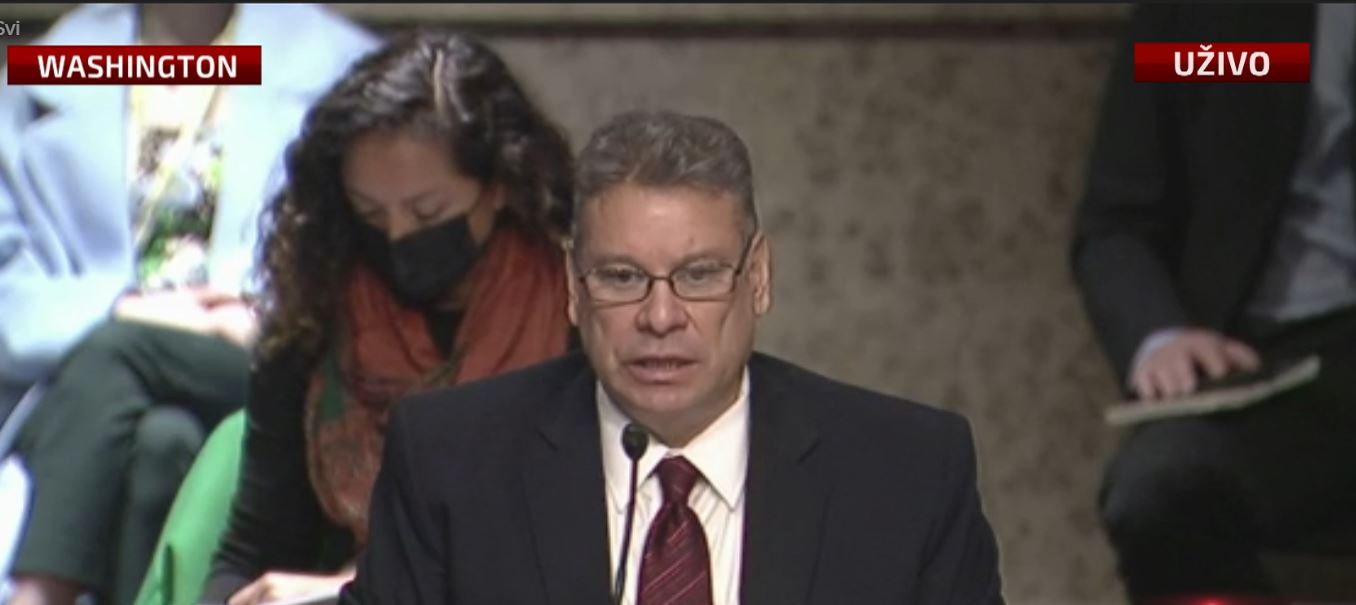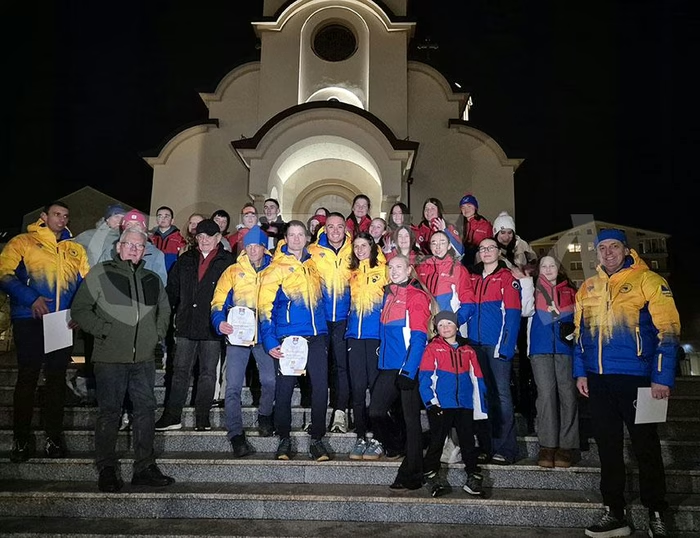Gabriel Escobar at US Senate: Political crisis, corruption hurt BiH's citizens

The ongoing political crisis and endemic corruption in Bosnia and Herzegovina hurts its citizens and jeopardizes regional stability, its Euro-Atlantic trajectory, and the progress achieved since the Dayton Peace Accords, Deputy Assistant Secretary of State for European and Eurasian Affairs, Gabriel Escobar, told the US Senate Foreign Relations Subcommittee on Europe and Regional Security Cooperation.
Escobar, who is the US Special Representative for the Western Balkans, spoke at the committee's 'Hearing on Western Balkans: Supporting Peace and Prosperity'.
He began his testimony by saying that “a Europe free, whole, prosperous, and at peace” remains a vital interest of US policy.
“The Western Balkans is central to this vision, although its potential remains unfulfilled. The Biden Administration recognizes this challenge and remains committed to this region, which is historically, politically, culturally, and geographically an indivisible part of Europe,” he said, adding that the longstanding US diplomatic engagement supports the full integration of the region into Euro-Atlantic structures.
“A stronger Balkans, integrated in a stronger Europe, makes a stronger Transatlantic Partnership,” he said.
Escobar said that the US continues to deepen its longstanding partnerships in the region.
“Our partners in the Western Balkans are set on integrating more closely with the EU single market, and we continue to support them,” he said, noting that regional initiatives such as the EU Common Regional Market, Open Balkan and Green Agenda show that “deeper economic integration and cooperation are indispensable for sustainable growth and EU membership.”
“There are vast opportunities for U.S. businesses, and we continue to encourage countries to strengthen rule of law, fight corruption, and increase transparency to expand investment opportunities. The necessary reforms will increase prosperity, prioritize sustainable investments and clean energy, and stem brain drain. They will also reduce politically driven investment from outside actors and build the foundations for good neighbourly relations and stable governance,” he said.
He noted that earnest efforts to strengthen democratic institutions and counter corruption could be seen in some regional countries but that this is not the case in all of them, as there have been setbacks.
“In Bosnia and Herzegovina, the ongoing political crisis and endemic corruption hurts its citizens, and jeopardizes regional stability, its Euro-Atlantic trajectory, and the progress achieved since the Dayton Peace Accords. We continue to make clear to all leaders that de-escalation of rhetoric and the resolution of differences through established constitutional processes are the only viable paths to a democratic, European future.”
“Along with our European partners, we are vigorously engaged with local actors to find ways forward and advance along the path from Dayton to Brussels, including through step-by-step reforms that will benefit all citizens. The need for dialogue, compromise, and reform applies across the region,” Escobar said.
“The US continues to work with its EU partners to advance EU integration for all countries in the region and to reinforce that the reforms that are part of the accession process bring their own benefits. At the same time, we stress to our EU partners the importance of keeping Europe’s doors open, as this is the most important incentive generating political will for critical but sometimes-difficult reforms,” he said.
Escobar stressed that “forward momentum would be important proof for the entire region that difficult compromises enable a better future.”
“Conversely, our warning to actors in the region who engage in corrupt, destabilizing, or anti-democratic behaviour is clear: there will be consequences,” he stressed, adding that, in December last year, the US utilized Global Magnitsky authorities against an organized criminal group operating in the region.
He also noted that the Treasury Department designated in January BiH Presidency member Milorad Dodik “for his corrupt and destabilizing behaviour”, as well as a television station under his control, using the new Western Balkans sanctions authority.
The State Department also imposed visa restrictions against corrupt officials in BiH, he added.
“The United States will continue to use all available tools to hold accountable those who block the region’s progress for their own financial or political gain,” he said.
“Regional progress is also threatened by the harmful foreign political and economic influences of Russia and China. Russia weaponizes its energy supply to coerce politicians, foster corruption, and stunt growth potential. It also fans ethno-nationalism that divides and distracts from a brighter future,” Escobar said.
The US official alleged that China is “expanding its presence by building critical infrastructure through opaque and predatory loans and investments.”
“Promoting transparent governance, human rights, and a rules-based international order will remain the core tenet of our engagement against these destabilizing activities in the Western Balkans,” he said.
“In closing, for the past three decades, the Western Balkans have been the focus of sustained U.S. engagement, investment, and bipartisan support. The results are clear: the countries of the former Yugoslavia now include four NATO Allies and two EU member states. Among the countries of the Western Balkans, four are NATO allies and all either share the strategic goal of deeper Western integration as EU aspirants or are EU members,” Escobar said.
“Our job is not over. Continued leadership from the United States, including here in the Senate, remains essential to completing the transformation of the Western Balkans into stronger allies, Transatlantic partners and contributors to global peace and prosperity. We continue to stress the need for a fully confirmed Slate of Ambassadors in the Western Balkans, most notably our nominee to Serbia, who is still
awaiting confirmation by the full Senate,” he concluded.
Kakvo je tvoje mišljenje o ovome?
Učestvuj u diskusiji ili pročitaj komentare





 Srbija
Srbija
 Hrvatska
Hrvatska
 Slovenija
Slovenija



























































